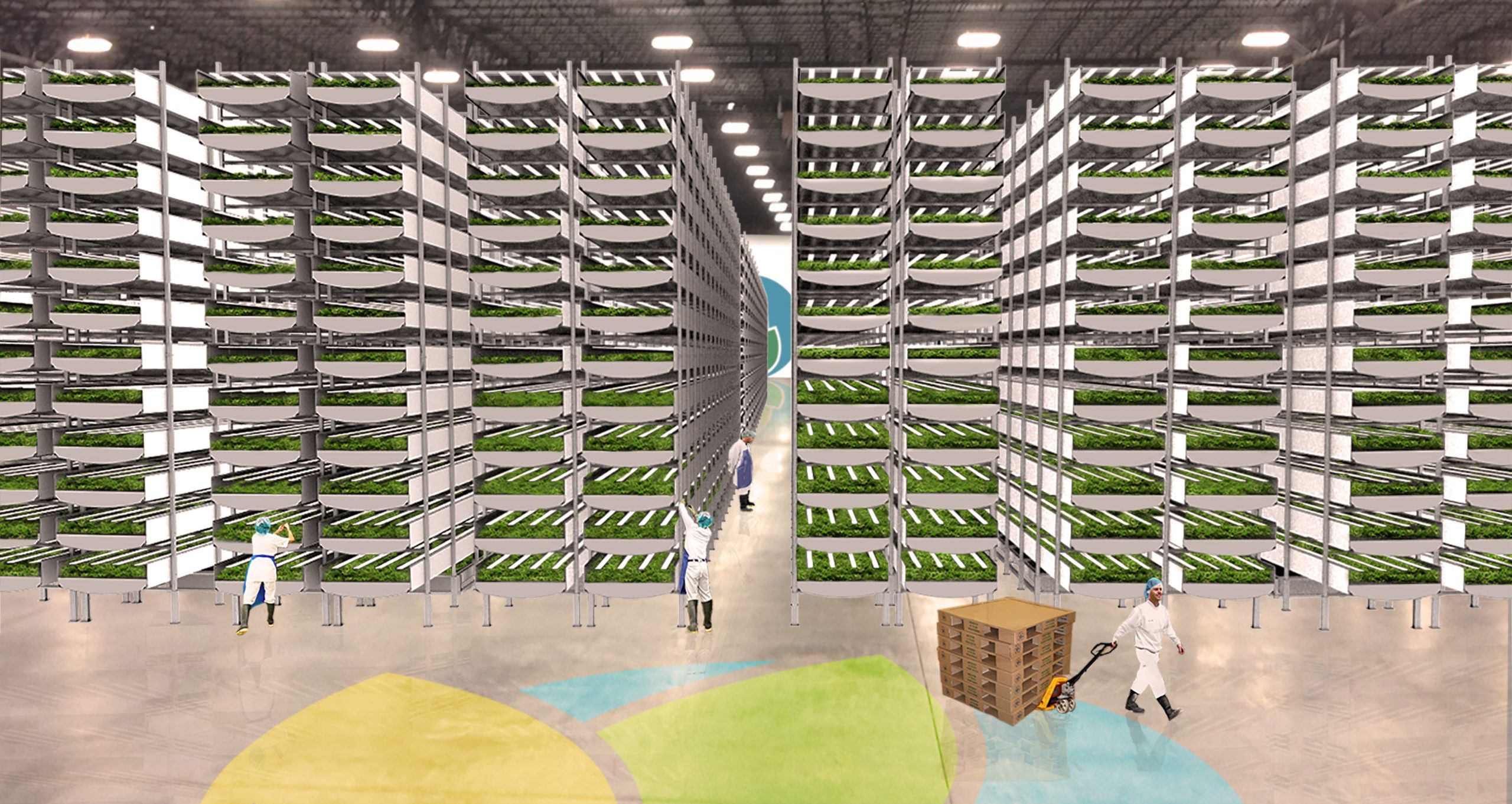AeroFarms, the New Jersey-based vertical farming group, has raised $100 million in late-stage funding. The deal is the latest jumbo deal in the vertical farming space: Germany’s distributed vertical farm startup Infarm raised $100 million last month, Bowery raised a $90 million Series B last year, while Plenty’s $200 million Series B from 2017 is still the largest in the space.
The lead investor was INGKA Group, the parent company of furniture and meatball leader IKEA, an existing investor in the company. In fact, no new investors joined the new round, which was made up of existing shareholders including two UK-based, agriculture-focused firms ADM Capital and the Wheatsheaf Group, as well as Mission Point Capital, China’s GSR Ventures and US asset management group AllianceBernstein.
AeroFarms’ last round was Series D so this could be called its Series E, although things can get murky at the later stages. Also, the deal was arranged by an investment bank, JPMorgan, which is less common in startup land. The news broke in the Financial Times but AeroFarms has yet to announce the deal publicly or respond to requests for comment meaning it could still be open.
The round values AeroFarms at $500 million, according to the FT, which is the same valuation as quasi-competitor Plenty, the West Coast group that raised $200 million in a record-breaking Series B in 2017 involving Japan’s SoftBank.
AeroFarms has been around longer than Plenty, however, founded in 2004 under a different business model, and raising its Seed round in 2010, according to PitchBook. Plenty was founded in 2013 under an earlier name of See Jane Farm and was in stealth for the first few years.
AeroFarms has now raised over $230 million in total but has been slow to expand, particularly overseas despite plans to do so. In 2017, when it closed its Series D round, a new investor was Meraas, the investment vehicle of Sheikh Mohammed bin Rashid, vice president of the United Arab Emirates and the ruler of Dubai.
“We want to expand domestically and overseas, and we are excited about the potential for Meraas to help us expand into that region,” David Rosenberg, CEO told AFN at the time. He also told AFN back in 2015 that he had a pipeline of farms on four continents. Currently, the company has two commercial farms in the US, including its flagship 70,000 square foot facility that opened in 2016, and a 30,000 square foot farm that opened in 2015 in Newark. It also has a 5,500 square foot research facility and a small 50 square foot school farm at Phillips Academy Charter School.
Talking to the FT, Rosenberg hinted that the business needed time: “One of the keys of this raise was to align ourselves with patient capital, that is willing to understand how we make a bigger impact.”
He also “attributed the company’s longevity to its scale and attention to detail. “This is an industry where the details matter and the pennies matter,” he said.”
Henry Gordon-Smith, founder of Agritecture, the urban farming consultancy and a leading voice in the industry, says that in most cases large scale vertical farms will take at least six years to return on their investment and that only a few years ago that was more like eight years.
Rapid advances in LED lighting tools and automation technologies are helping vertical farming to become more profitable each year as costs drop and become more consistent, he added. AeroFarms and the other large players have invested a lot of their investment capital into developing their own, proprietary tech systems in-house.
But the increasing development of accessible technology opens up the industry to newer players to launch and potentially accelerate vertical farming businesses more rapidly than the incumbents like AeroFarms, and at a fraction of the investment.
Some venture capital investors are betting purely on the technology to avoid getting into the business of growing and selling food but to take advantage of the growth of interest in vertical farming. (Disclosure: AgFunder is one such investor, recently backing Intelligent Growth Solutions, a plug-and-play vertical farming technology!)
But among vertical farm producers, having the first-mover advantage should hold AeroFarms in good stead when it comes to operations, added Gordon-Smith.





